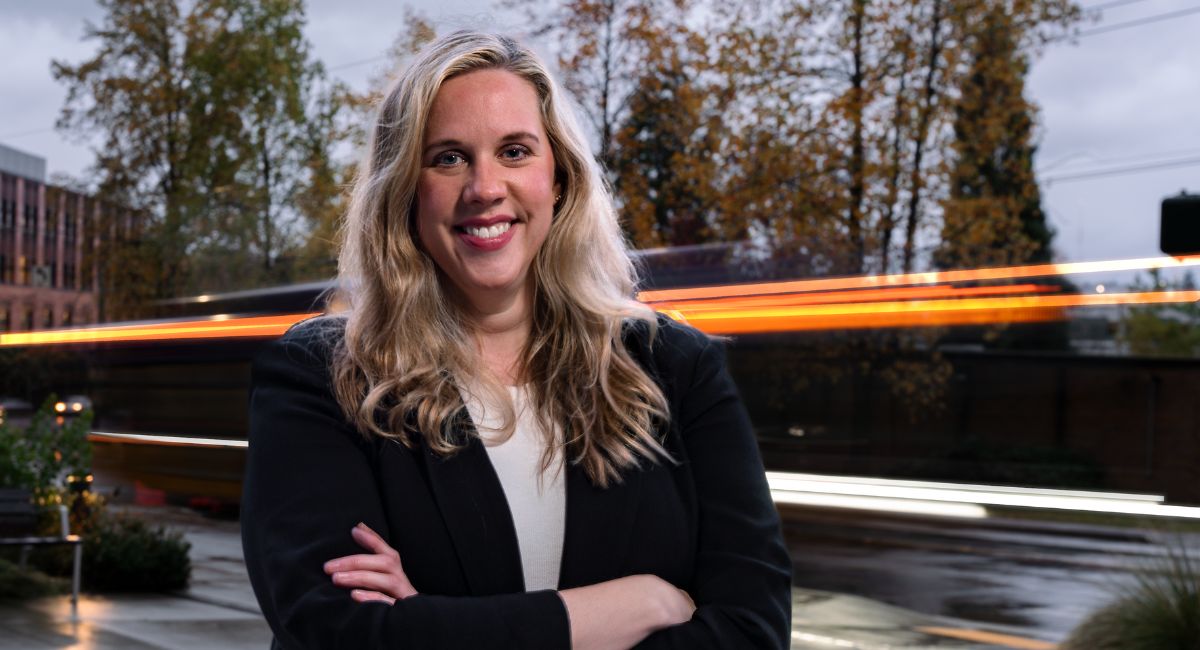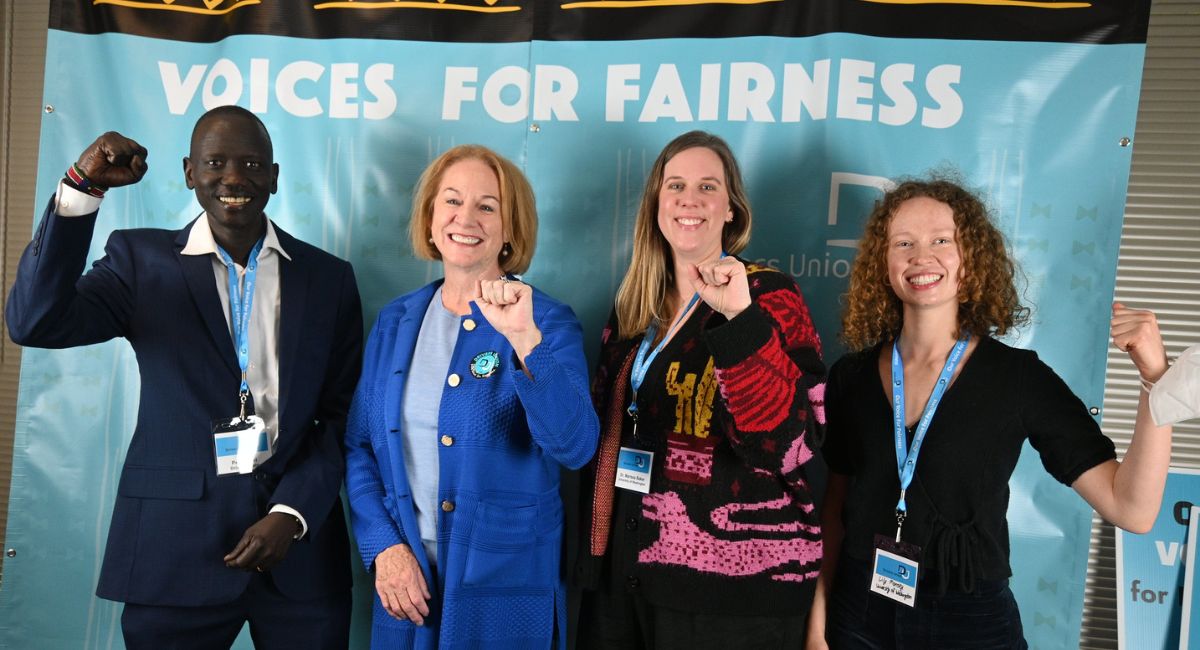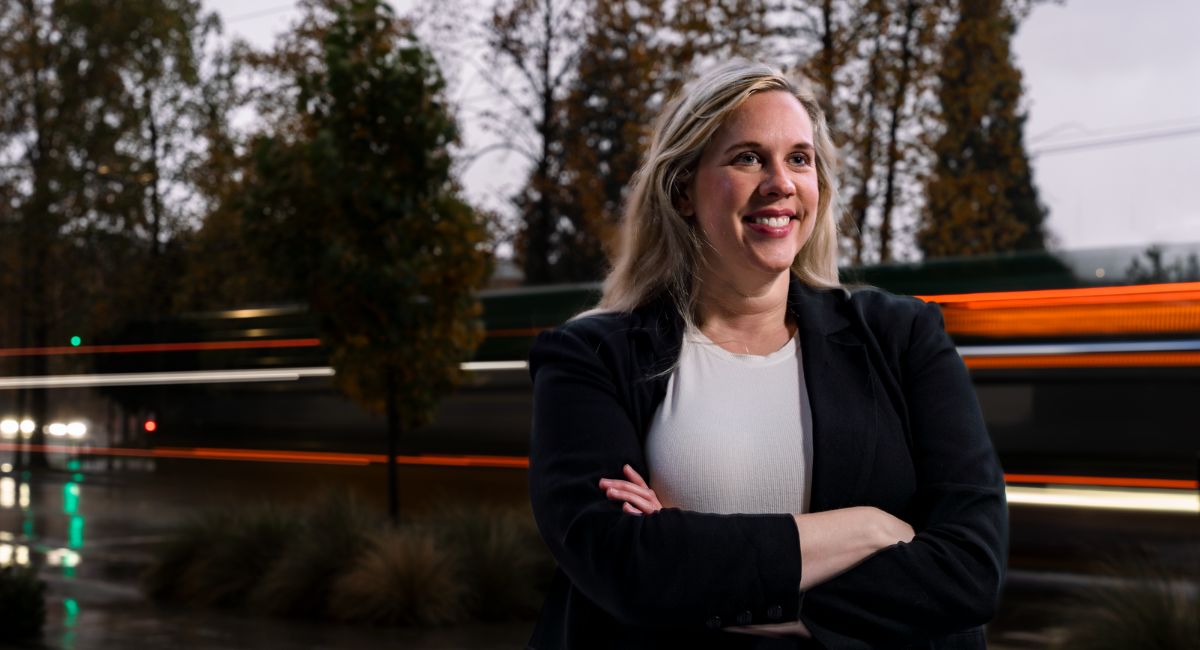
Assistant Professor Marissa Baker (Photo credit: Elizar Mercado)
Marissa Baker on showing respect for workers and collaborating with communities through the research-to-practice process
When Marissa Baker introduces the field of occupational health to her undergraduate students, she asks them to think of a job they or someone they know has had, and what they didn’t like about the job.
The answers are rarely about the physical safety of a job. Rather, the things they didn’t like are almost always about working long hours, being unfairly compensated, or being underappreciated.
This kind of workplace exposure, or what Baker calls psychosocial exposure, is something Baker studies as an assistant professor of environmental and occupational health sciences at the University of Washington School of Public Health. Even though she works with people who are exposed to hazards like chemicals or machinery on the job, many workers' biggest concerns have to do with their mental health, stress and well-being. While federal laws exist to protect workers from physical and chemical hazards, protecting against psychosocial hazards in the workplace can be more challenging to identify and address.
Methods to Research to Practice Continuum
This story is part of a series sharing how our faculty navigate the methods to research to practice continuum, or the journey from developing a research idea, to using a scientific strategy and conducting research, to working alongside communities so that findings have meaningful impact. View the rest of our series.
“How we are treated at work can really impact how we feel about ourselves, our job, and our mental health and well-being,” Baker said.
That’s why it’s important to Baker that her research makes an immediate impact on the well-being of the communities she collaborates with. Her research process involves listening closely to communities, updating her methodology to support their needs, and working with them on the research findings so solutions can be easily understood and implemented.
Baker works with a wide range of communities, from female construction workers facing gender bias to maritime workers struggling with stigma around mental health. Whoever she’s working with, Baker begins her research process by listening to their needs. To get this information, she conducts surveys and interviews and assembles an advisory group from that community to fine-tune her methods.
It’s important that the research methods work well for the communities she partners with. If a survey is too long, workers may not have time or interest in completing it. If English is not the primary language of people taking a survey, the wording of questions may be unclear. For example, when Baker was conducting a survey with app-based rideshare drivers, she asked them to respond to questions with the multiple choice options “always,” “often,” “sometimes,” “almost never” and “never.” But some of the drivers for whom English was not a primary language were unsure of the difference between “almost never” and “never.” So Baker condensed the options to “always,” “sometimes” and “never.”

“Methodologists may look at that and say, ‘You’re not able to capture variability because of that scale,’ but we were able to capture people who wouldn’t have otherwise participated,” Baker said.
Using the responses from this survey, Baker learned that app-based rideshare drivers during the pandemic were not receiving adequate compensation for personal protective equipment (PPE) and cleaning supplies. Baker shared these findings with the Seattle City Council, which had already been working on a plan to improve these drivers’ wages. The council passed a bill with funding for PPE and cleaning supplies for drivers which Baker had raised in her testimony and found important from her research. The Washington State Legislature passed a similar bill informed by the Seattle City Council’s actions, amplifying the reach of Baker’s research.
Having this rapid and immediate impact is a dream scenario for many researchers, as the research process and creation of policy informed by that research is often slow.
However, Baker tries to ensure that the work she does is immediately helpful to communities, which means doing work beyond writing a research paper and submitting it for publication. Baker also collaborates with workers to hold town halls to discuss the findings, gives presentations to employee groups, or prepares reports that uses simple, everyday language rather than the academic jargon commonly found in research papers.

“In public health, everything we are doing is research that will be translated into practice, either now, or as it gets built upon,” Baker said, who also emphasizes the importance of connecting methods, research and practice in public health with her students. “Part of doing responsible research with people is to ensure you discuss what you found and hopefully have an opportunity to work with them to prioritize next steps.”